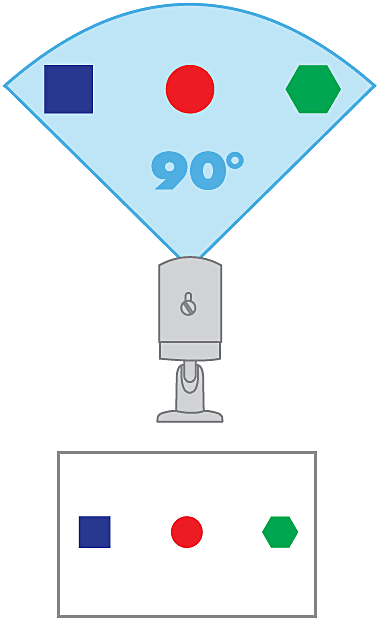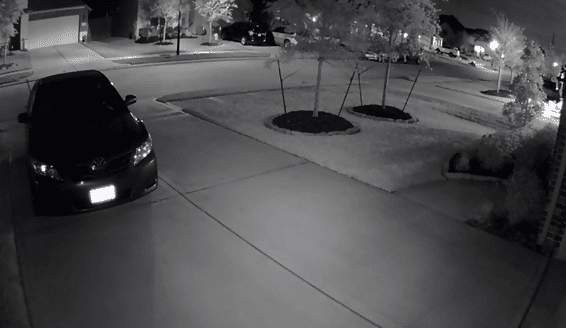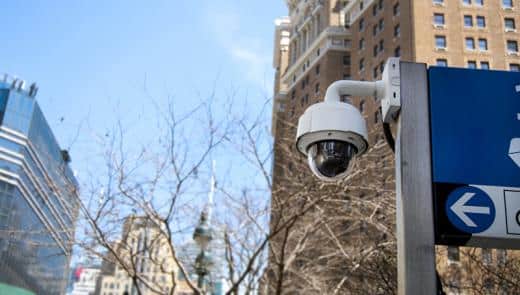- Jun 19, 2019
- |
- Category:Surveillance Camera and Access Control
Buying Outdoor Security Cameras? Here are 8 questions to ask
What You Need to Know Before Buying Outdoor Security Cameras For Your Business
Outdoor security cameras are an incredible tool for keeping your business safe. After all, in order to get inside your business to commit a crime, the criminal will have to pass the outside of the building. By having outdoor security cameras, you can make sure that you have footage of anyone who comes to your company with ill intent.
Buying outdoor security cameras will give your business long-term results, and it is important to do your research ahead of time. We’ve put together a list of the top eight things we think everyone should know about before buying outdoor security cameras. After reading the insider info, tips, and advice we’ve compiled, you’ll be in a great position to buy the best outdoor security cameras for your business.
1. What is your security camera budget?
The first thing you need to know when you’re looking to buy outdoor security cameras is what your budget is. This will be impacted by many things, including the number of cameras you need, the type of cameras you need, and more. Starting with your budget will make it easier for you to be selective about the other factors related to your outdoor cameras so that you can get the most bang for your buck.
There are outdoor security cameras available at all price points. The main drawback to cheaper cameras is that they often have lower resolution recordings and may not come with other features that you want (night vision, cold resistance, etc.). You don’t necessarily need the most expensive camera on the market, but you are likely to get nicer cameras if you can afford a higher price point. That means better footage and a better chance of capturing the details needed to catch criminals.
No matter what your budget is for outdoor security cameras, working with a professional security camera installer like datanet IT can help you figure out what your security camera needs are and what you can afford based on your budget.
2. What is the camera’s field of view?
The field of view is sometimes a bit of an afterthought when people buy outdoor security cameras. It’s easy to assume that all cameras will do the same job when it comes to seeing events happen and recording them. However, some cameras are built to see more than others. The field of view refers to how large of a scene that camera can capture.

For example, if you need to monitor your business’s main entrance, the field of view may change how many cameras you need. The wider the field of view, the more ground the camera will cover. So, a camera with a 90-degree field of view may
only be able to capture 80% of your main entrance, while a camera with a 130-degree field of view can capture 100% with no problem.
If you plan out where you’ll be placing your security cameras, you can use the field of view to your advantage so that you need fewer cameras to cover the same amount of space. Doing those calculations on the front end prior to purchasing your outdoor security cameras will help make sure that you don’t end up with any blind spots that aren’t covered by your cameras. The last thing you want is to install a great outdoor security camera system and then unintentionally end up with areas that are still vulnerable.
If the idea of doing calculations and math to figure out how to take advantage of the field of view is overwhelming to you, don’t worry—this is something that a professional security camera installation company will automatically be taken into account. They will do the hard work for you of making sure that your outdoor security camera provide comprehensive coverage so that your business is completely protected.
3. Is the camera HD?
Everyone is familiar with the somewhat grainy look of black and white CCTV footage. With the advances in technology over the last few years, security cameras can now capture much higher quality video. The highest quality available is often referred to as high definition or HD.
The level of resolution is usually referred to by the pixels. The higher the number, the sharper the image and the more detail it will capture. A 720
HD cameras can be a good choice for outdoor security cameras since they capture a greater amount of detail. That means that you’ll be more likely to be able to identify faces, cars, and even license plates based on security footage—details that are often hard to make out in lower quality footage. Depending on what your security needs are, you can decide whether you need HD cameras or if lower-resolution footage will meet your needs.
4. Does the camera have night vision?
To decide if night vision cameras are necessary for your company, it’s a good idea to walk the perimeter of your building and look for spots where you might have a security concern. Then look at the lighting in the area to see if cameras without night vision would be able to pick up accurate recordings. It’s always better to be safe than sorry and get cameras with night vision if you have any question about whether non-night vision cameras would do the job.
5. What weather conditions can the camera work in?
This is another often-overlooked factor. Outdoor security cameras are designed to withstand different weather conditions. Some are meant for rainy and wet climates, while others will survive subzero temperatures and snow. Think about what weather you might expect from your region, and then look for cameras built for your area based on that.
It’s also a good idea to have a contingency plan in place in case your outdoor security cameras get knocked out by bad weather. For example, if your security cameras get damaged by a hurricane or a massive hailstorm, you’ll want a plan to help get them back up and running as quickly as possible. You might also want to think about what you’ll do if bad weather knocks out power to your building or causes the internet to go out. Depending on what type of cameras you have, they may not work in those situations, and it will make things much less stressful if you know how you’ll handle it ahead of time.
6. Do you need wired or wireless?
The debate over wired vs. wireless security cameras is just as relevant to outdoor cameras as it is to indoor ones. To decide if wire or wireless cameras are a better fit for your business, there are a few different things to consider. First, look at the places where you want to put outdoor security cameras. Will you be able to run wires to those locations? If not, wireless security cameras are going to be a better choice for you.
You’ll also want to think about how you plan to store the footage. If you’re looking to have an in-house physical storage system, wired cameras are likely to get the job done effectively. If you’re more interested in cloud storage, wireless cameras might be more appropriate, although wired cameras can still be used with the cloud.
If you’re thinking about wireless cameras, you also need to consider if you have a WiFi internet connection that is fast enough and stable enough to guarantee that the cameras keep working. If there’s any chance that your internet might go out at some point or that you don’t have the bandwidth, you’ll want to go with wired cameras to avoid any problems.
If you’re on the fence about whether wired or wireless cameras are a better fit for your company, feel free to contact us at datanet IT. We can help walk through the pros and cons of each type o outdoor security camera with you to help make sure that you get the best security cameras for your business.
7. Is the camera set up for motion detection?
Outdoor security cameras are great candidates for motion detection technology. Depending on where you place them, they may go for long stretches of time—hours and even days—without any activity in the vicinity. Using cameras equipped with motion detection means that those cameras won’t be needlessly recording hours of useless footage where nothing happens. Instead, they’ll only be triggered to start recording when they detect movement.
Now, motion detection isn’t completely foolproof. The technology is often sensitive enough that the cameras might be triggered by passing wildlife. However, that is still a huge improvement over having the camera recording nonstop when nothing is happening.
If you’re not sure whether you need motion detection for all of your outdoor security cameras, you can always mix and match. Get motion detection for the cameras where you think it’s needed and don’t worry about it for areas where you need more constant monitoring.
8. Do you need the camera to integrate with other technology?
One of the biggest perks to security cameras these days is their ability to integrate with other forms of technology. That said, not all outdoor security cameras are equal when it comes to compatibility.
Remote monitoring capabilities are one of the main perks that business owners and security staff often look for. Outdoor security cameras can provide a huge sense of peace of mind by allowing the owner or security staff to check in on the company any time and anywhere. If you value being able to remotely check your outdoor security camera footage, you’ll want to work with a professional security cameras installer to guarantee that your new cameras will sync with whatever digital storage and monitoring platforms you use.
Some outdoor security cameras are also able to sync with apps on smartphones, sending alerts if anything unusual is detected. This can be especially helpful if you opted for motion detection, as you can receive handy alerts on your cell phone if the cameras detect motion and start recording.
It may also be worthwhile to check out what new features different platforms are planning on rolling out in the near future so that you can proactively choose cameras that will be compatible. While you can always upgrade your cameras down the line if you need to, it will make things easier if you choose outdoor security cameras that are designed to work with other technology.
Conclusion
There are a lot of different factors to think about when you’re looking to buy outdoor security cameras. You should take your company’s security needs, your region’s weather, and the physical features and qualities of the camera into consideration when you’re deciding what cameras to buy. With a little bit of planning and forethought, outdoor security cameras can be a significant addition to your company’s overall security. They’re reliable and proven to deter crime, and they’ll help make sure that you have the information you need if any crime does occur. If you have specific questions about the benefits of outdoor security cameras and how they might meet your business’s security needs, get in touch with us and we can help you determine if they are the right camera for the job!
About the Author
As datanet IT, our experts specialize in working with clients to design tailored security solutions. If you want more information on the business security camera systems that we offer, feel free to reach out to us today. We’re happy to work with you to ensure your company is protected! If you wish to be contacted about a security camera install, please fill out this form.



